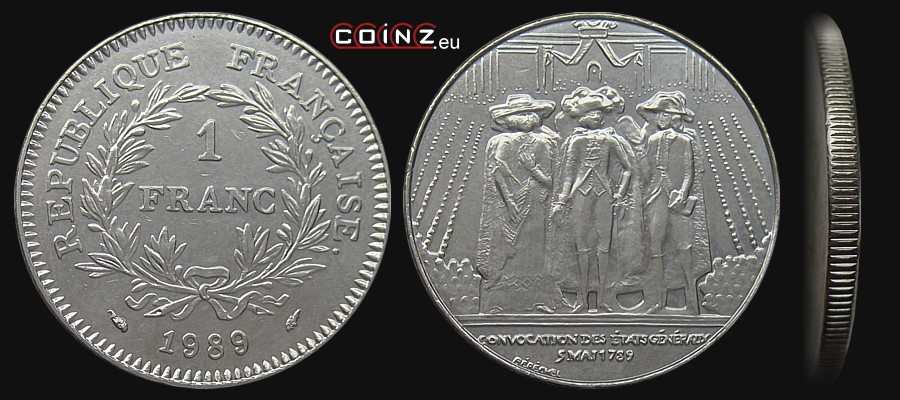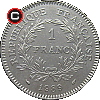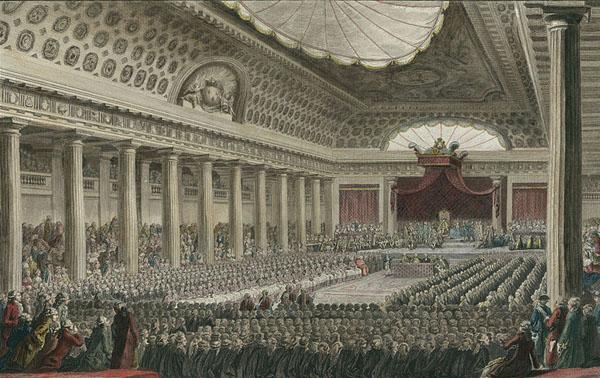1 franc FRANCE (1989) 200 Years of Estates-General


| diameter: | weight: | thickness: | alloy: |
| 24.0 mm | 6.0 g | 1.8 mm | Ni98 |
obverse:
in the coin centre in two lines face value: 1 / FRANC surrounded by a laurer wreath; along the top edge: RÉPUBLIQUE FRANÇAISE. (French Republic); along the bottom edge year of issue 1989; ring of cones at the edge
reverse:
in the coin centre three figures of Estate General representatives en face; in the background aditorium in Versailles; on the bottom inscription in two lines: CONVOCATION DES ÉTATS GÉNÉRAUX / 5 MAI 1789 (convocation of Estates-General 5 May 1789)
edge:
reeded
issue date:
??? no data
withdrawal date:
18 II 2002
designer:
Atelier de gravure (group of designers of the Paris Mint) based on design of Pierre Joseph Tiolier, Claudine Béréchel (signature BÉRÉCHEL along the bottom edge of the obverse)
mint:
 La Monnaie de Paris (The Paris Mint), Pessac (mint mark before year of issue in the obverse, after year of issue privy mark of mint's director Emile Rousseau - dolphin)
La Monnaie de Paris (The Paris Mint), Pessac (mint mark before year of issue in the obverse, after year of issue privy mark of mint's director Emile Rousseau - dolphin)
mintage:
| 1989 | 5 000 011 | + 12 000 in annual boxed sets |
mint marks:
interesting facts:
Estates-General (in French États-Généraux) was convened by the king of France as his advisory body composed of representatives of three states: the nobility, the clergy and the third estate (mainly the burghers and the peasantry). Their history dates back to the early 14th century during the reign of Philip IV. In 1789, less than five centturies later, the Estates-General convened by Louis XVI was transformed into the National Assembly (in French Assemblée Nationale Constituante), which ended the era of royal absolutism. This became the trigger for the French Revolution, conquest of Bastille and the proclamation of the First French Republic.
Versailles - the auditorium of Estates-General.

Versailles - the auditorium of Estates-General.

last update: 20 XI 2013
coins catalogue :: katalog monet :: münzkatalog :: catalogue de monnaies :: catálogo de monedas :: catalogo monete :: каталог монет :: κέρματα κατάλογος :: COINZ.eu
© 2010-2025 :: Adam Kubicki :: COINZ.eu :: All rights reserved.


